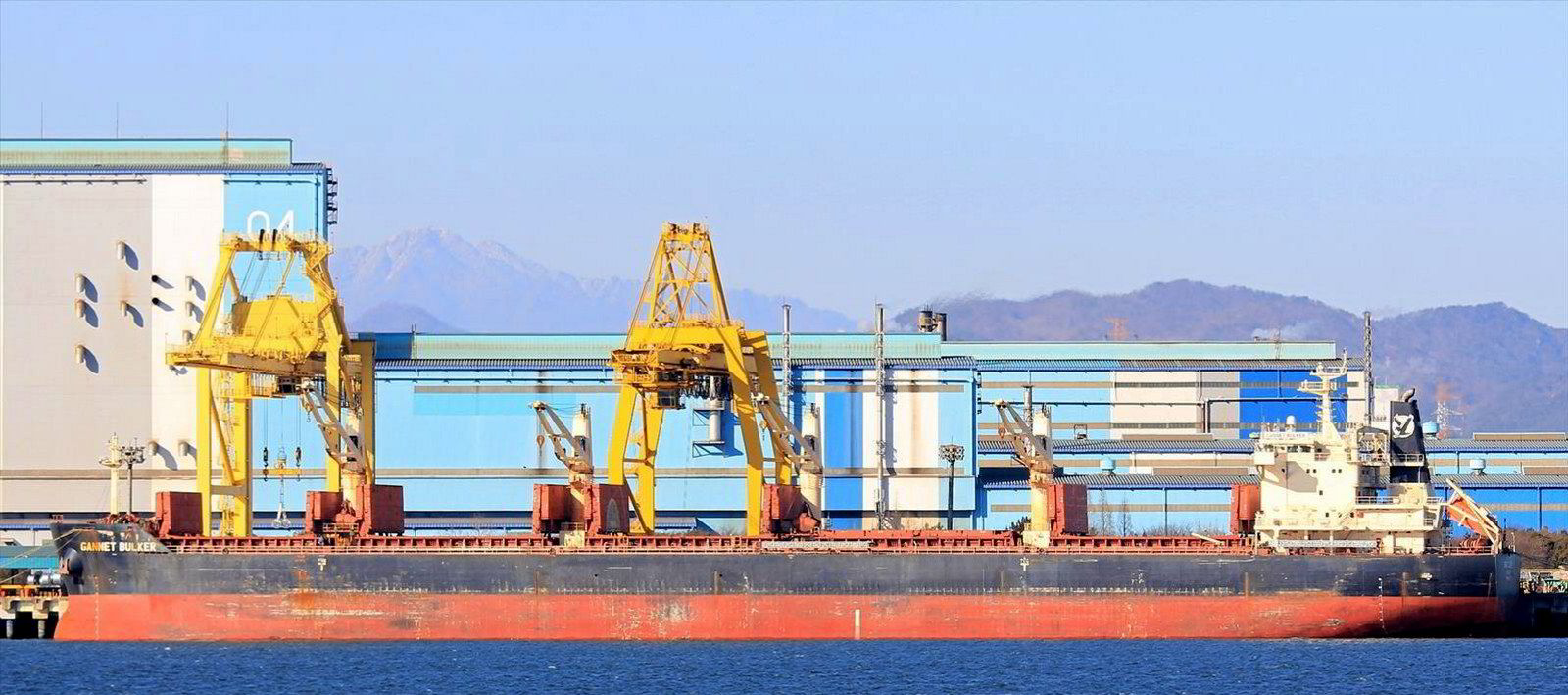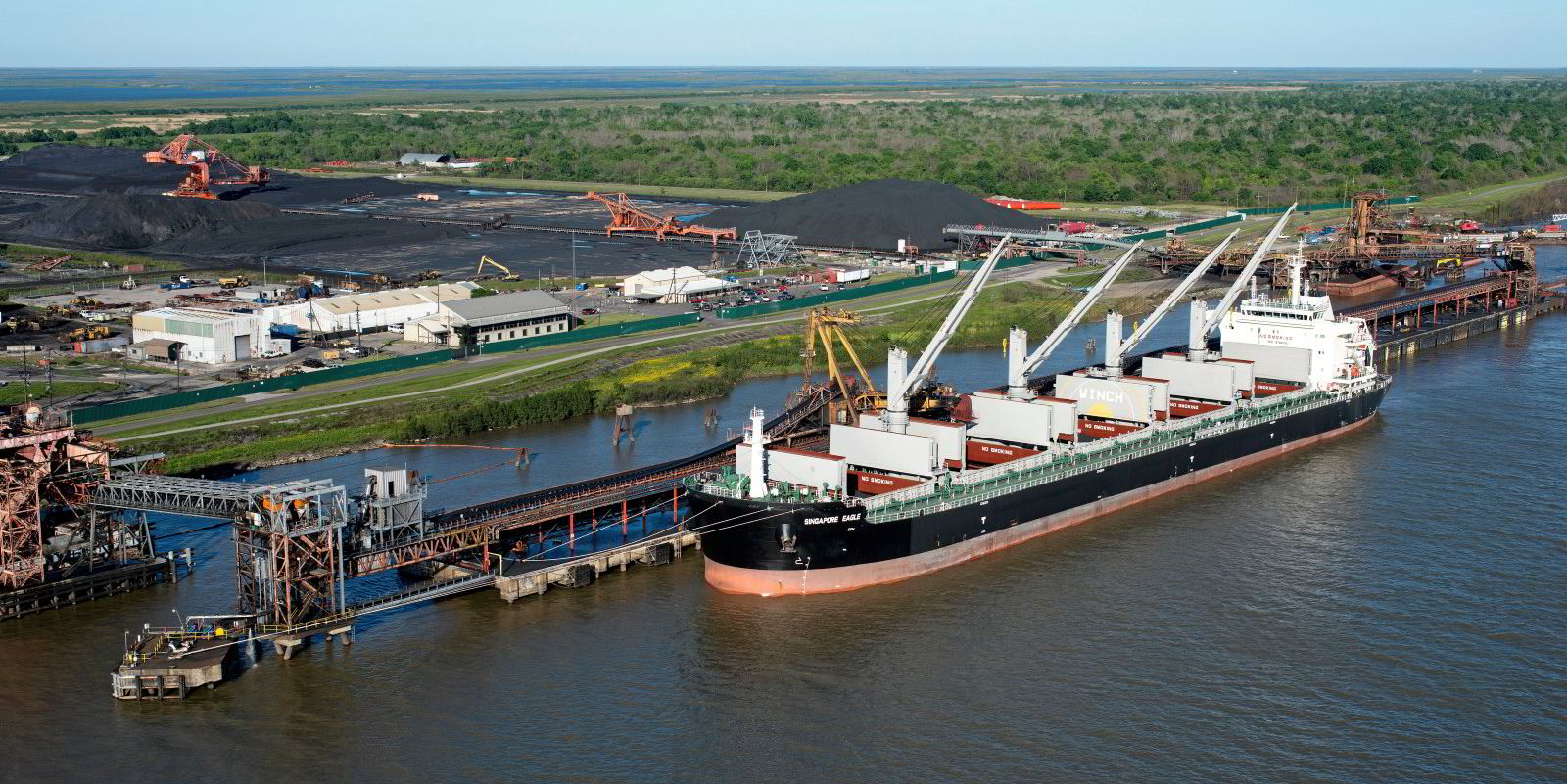An Eagle Bulk Shipping chief engineer who has been sentenced to prison in a pollution case alleged that the ship’s master directed some of his illegal actions, court records show.
The documents provide potential insight into the next steps for the ongoing case, which saw Kirill Kompaniets sentenced to a year and a day in federal prison for dumping oily bilge water into the sea off New Orleans and for obstructing justice by trying to conceal the crime.
In a document known as a factual basis filed in connection with his agreement to plead guilty, Kompaniets and federal prosecutors jointly laid out the chief engineer’s actions on Eagle Bulk’s 57,800-dwt supramax Gannet Bulker (built 2010) in March 2021 including pumping oil-contaminated waste overboard after ballast water leaked into the engine room and “various acts of obstruction of justice”.
An addendum is included on the document’s final two pages that details the chief engineer’s account of the alleged role of the master, whose name has not been made public.
“According to Kompaniets, the master directed that the bilges be dumped overboard at night,” the chief engineer acknowledged in the factual basis, which noted that another engineer overheard part of the conversation.
Kompaniets also acknowledged that, at the direction of the master, he ordered that the bilges be cleaned up and the remaining oil and other debris be pumped into a waste oil tank.
The document also shows that the chief engineer and prosecutors sought to pin obstruction of justice, including steps to retaliate against the whistleblower who used social media to report the pollution incident to the US Coast Guard, on the master as well.
“According to Kompaniets, his obstructive acts were consistent with what he understood to be the master’s wishes,” prosecutors and the chief engineer agreed in the factual basis, which was filed in May.
‘Direction of the master’
“Kompaniets’ concealment of computer printout of alarm data, false statements made to the Coast Guard (eg, minimising the volume leaked into the bilges, denying an overboard discharge), and falsely suggesting to crew members that the whistleblower may have been to blame for any discharge, were all done at the direction of the master.”
A focus on the master is expected to point toward a playbook by US prosecutors that often sees shipowners and managers face criminal charges for actions of vessel crew based on vicarious liability. That comes into play if the oil dumping was done “for the benefit” of the company even if the outfit itself is not accused of any overt criminal acts.

“It’s their game plan to get at least one organisational guilty plea,” said Chalos & Co principal George Chalos, who frequently defends shipowners in criminal pollution cases.
The lawyer, who expects Eagle to settle the case, said that typically US officials seek a plea from a vessel’s manager, specifically the entity holding the document of compliance. That entity typically agrees to a compliance plan covering all vessels under its control.
In-house management
The Marshall Islands-flag Gannet Bulker is owned by one-ship company Gannet Shipping and has Eagle Bulk-owned Eagle Ship Management as its technical manager.
As TradeWinds has reported, New York-listed Eagle Bulk has acknowledged in securities filings that it is under investigation and that it does not expect any penalty to have a material impact on its finances.

“We take any such activity extremely seriously as it is a gross violation of all our environmental, safety and operating practices,” Eagle Bulk spokesman Darrell Wilson told TradeWinds.
“As previously stated, we have and will continue to cooperate with the government during this investigation.”
Chalos said that the year and a day sentence against Kompaniets is longer than many ship officers sentenced in recent cases, where they instead received probation or home confinement. And the engineer had effectively been detained in the US since the Gannet Bulker investigation began.
“It’s just egregious. The guy’s already done 18 months detained against his will. Enough’s enough,” Chalos said.
Unlike most US prosecutions that focus on oil dumping in international waters, the Gannet Bulker chief engineer was sentenced for pollution in an anchorage off the US coast. But Chalos pointed to the lack of evidence of environmental damage from the discharge.
“It’s a lot of sizzle but no steak,” he said.





